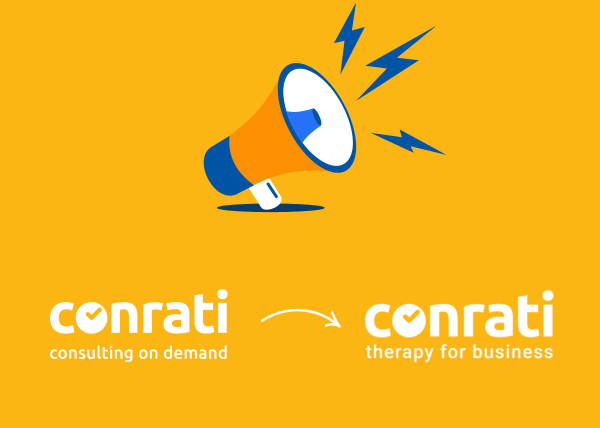We all experience adulthood differently. Depending on your circumstances, it may mean living on your own or going away to college. Others may begin their first real job and become financially independent. Whatever your circumstances, becoming an adult means taking on the responsibility of your actions.
Adults often have a difficult time balancing their obligations and responsibilities, but if you’re constantly late, disorganised, forgetful, and overwhelmed by your obligations, you may have attention deficit hyperactivity disorder (ADHD).
When someone with ADHD is overactive or impulsive, they may have trouble controlling their behaviors. In addition to hyperactivity and impulsive behaviors, this can also make it difficult for them to concentrate on a single task or sit still for extended periods of time.

The 3 types of ADHD
- Inattentive type – The inattentive type is generally less disruptive and active than hyperactive-impulsive types.
- Hyperactive-impulsive type – The hyperactive-impulsive type experiences more symptoms of hyperactivity and impulsivity.
- Combined type – The combined type is a combination of the inattentive and hyperactive-impulsive categories.
As a developmental disorder, ADHD cannot develop in adults without first appearing during childhood, thereafter continuing into adulthood. Symptoms are unique to each individual.

Inattentive type
A person experiencing symptoms of the inattentive type may show the following signs:
- Having trouble staying organized or managing time
- Putting off or avoiding long-term mental tasks, such as homework or work projects
- The tendency to lose things that are essential to daily activities and routines
- Being easily distracted
- Frequently forgetting things in everyday life
- Having trouble paying attention to details or listening to others
- A lack of concentration when performing tasks or activities
- Having difficulty following instructions and completing tasks as directed
- Easily distracted or lose focus
Hyperactive-impulsive type
A person who is predominantly more hyperactive and impulsive may show the following signs:
- A lack of patience or a difficulty taking turns
- An incessant tendency to fidget, squirm, or tap your toes and hands
- Problems staying seated at school, work, etc.
- Being unable to sit quietly, remain still, or remain in one place for long periods of time
- Talking excessively
- Having persistent restlessness, which may manifest as an inability to sit still or a tendency to run or climb inappropriately
- Inability to relax or play quietly
- An inclination to answer a question before someone else has finished asking it
- Using another person’s belongings without permission, interrupting conversations, or intruding on other people’s activities
Combined type
A person who has a combined type of ADHD will have symptoms of both the inattentive and hyperactive-impulsive type.
People with ADHD sometimes have other mental health conditions such as depression or anxiety which could be as a result of living with ADHD.
ADHD and Creativity
Previous studies show a link between ADHD and enhanced creativity. This is experienced through better performance on certain types of creative tasks, specifically, those that involve divergent thinking. Divergent thinking is a thought process or method that is used to create multiple, unique ideas or solutions to a problem you are trying to solve.
You may also find yourself good at:
- Creativity and Imagination
- Problem solving
- High levels of compassion
- A good sense of humour
- High perseverance
- Keen memory and sense of observation
- Endless energy
Can adult ADHD be managed?
ADHD treatment for adults typically involves medication, education, skills training, and psychological counseling. Treatment often involves a combination of these approaches. While these treatments help manage many of the symptoms of ADHD, they do not cure it. It might be tough to begin with but each step you take towards managing your symptoms will become easier.
There are many ways you can manage your symptoms and lead a productive and satisfied life through lifestyle changes such as:
- Exercising regularly. There are many benefits to exercising regularly. It can help you work off excess energy in a positive way.
- Eating healthy. Our eating habits also affect our moods. By eating more nutritious foods, staying hydrated and limiting sugar intake, we not only lower our risk of heart disease, diabetes and other illnesses, but we can also manage our mood.
- Managing stress. Taking regular breaks when performing tasks can help you stay on track and avoid feeling overwhelmed. Understand that forming healthy habits is not achieved overnight and that learning to manage your stress can boost your productivity and overall well being.
- Spend time outdoors in nature. Viewing scenes of nature or being in nature reduces anger, fear, and stress and increases pleasant feelings. In addition to making you feel better emotionally, being close to nature also reduces blood pressure, heart rate, muscle tension, and the production of stress hormones.
- Improving your sleeping habits. Ensure that you get enough rest each night. Your body needs to function optimally. For adults, 7 or more hours of sleep is recommended. Avoid late night scrolling on social media. Give your mind time to relax and set the scene for you to naturally start falling asleep.
- Invest in your relationships. A good support structure can help you achieve your goals and your family and friends can be there for you by supporting you through it. Spend time nurturing those relationships and schedule activities to help you stay connected.
When is it time to seek out a professional?
If the symptoms of ADHD are too challenging to manage and are creating immense difficulty in your day to day life, it may be time to seek out a professional for support.
There are many benefits to speaking to a professional to help and support you in your journey to managing your symptoms. It’s not too late to start now and create lasting change in your life.
You can search for advice providers based on availability, skills, language, certifications, and price.
Visit the Conrati website to find your perfect match: www.conrati.com
Disclaimer: This article is written and published for educational purposes. It is not intended on substituting a professional diagnosis. If you suspect that you may have ADHD or another mental health condition, we suggest you seek help from a mental health professional.









2 Replies to What do adults with Attention Deficit Hyperactivity Disorder (ADHD) experience?
Why your child should have a tutor
Conrati nominated as a Top Environmental Consulting Company by Futurology
Business Transition Notification 2024
Mentorship for the Mentee
How to boost 8 different forms of health
Conrati nominated as a Top Environmental Consulting Company by Futurology
How social media affects mental health
Understanding Bipolar Disorder